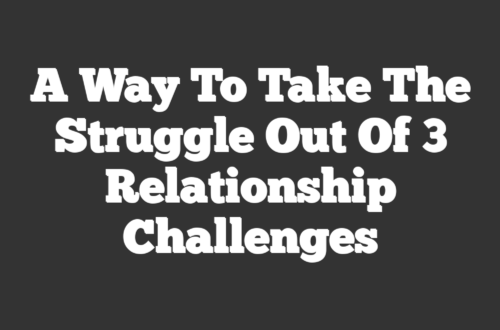
In love, it’s easy to think we’re doing everything right. But sometimes, without meaning to, we might be a little more focused on what we want than what our partner needs.
Are you the one always deciding on the restaurant or outlining weekend plans without their say? It might not seem like a big deal, but these small actions can say a lot about your partnership.
Feeling like you’ve been a little too caught up in your own world? Stick around as we uncover the signs that it’s time to give a little more and take a little less in your relationship.
You Prioritize Your Needs Over Your Partner’s Consistently
In a loving relationship, both people should feel important. But if you find yourself picking what to do or where to eat all the time without asking your partner, this might lead them to feel left out or less valued.
It’s like if you choose to watch your favorite show every night and never ask them what they’d like to watch. This can make your partner feel as if their preferences don’t matter to you.
What to do:
- Learn about their preferences. Whether it’s about choosing a movie or deciding where to eat, their choice should matter as much as yours.
- Try to find things you both enjoy. It’s more fun when both of you are happy with the decision.
- Take turns deciding. When it comes to choices, like where to eat or what to do, take turns.
It’s all about balance. You don’t have to give up what you want, but finding a way to include your partner’s needs shows you care about them too.
You’re Not Making Your Partner’s Happiness A Priority
Happiness in a relationship isn’t just about large gestures. It’s about small actions that show you care. Simple things like listening carefully when your partner talks about their day or bringing them their favorite snack can mean a lot. Making sure your partner feels happy should be important in a relationship.
If you’re not doing small things to make your partner happy, it might be time to think about how you can start to:
- Send them a kind message.
- Help with their work if they seem too busy.
- Plan something special that they like.
Doing nice things for your partner shows you care and support them. It’s the ongoing effort to bring joy to each other’s lives that truly strengthens your connection.
You Get More Than You Give
Are you always on the receiving end? Maybe your partner is the one who mostly listens, helps out, or makes you feel better when you’re down, but you don’t do the same for them. This can make things feel off-balance.
Try answering these:
- When your partner is having a tough time, are you there to listen and help?
- Do you celebrate their successes as much as they celebrate yours?
Being in a healthy relationship means both people feel they give and receive equally. Look for ways to show your partner that you’re there for them too. A relationship is strongest when both feel equally cared for.
You Expect Your Partner To Always Adjust To Your Plans
When you make plans, do you always decide without asking your partner what they think? If every weekend ends up with you choosing the activity or deciding how you spend your time together without input from your partner, it might make them feel like their opinions don’t matter much.
Imagine planning to go hiking every Sunday because it’s what you love, but your partner prefers a quiet morning at a coffee shop.
Try this:
- Before making plans, ask your partner what they feel like doing.
- Every once in a while, let your partner make all the decisions for the day.
Remember, it’s important to work as a team. This means sometimes doing what your partner wants to do, even if it’s not your first choice. This shows you respect their wishes and value their happiness as much as your own.
You Struggle To Compromise
Compromise means finding a middle ground where both partners can be happy. It’s not about one person always getting their way. Let’s say you want to watch a sci-fi movie, but your partner prefers a comedy. Compromising might mean watching one tonight and the other next time.
If you find it hard to meet halfway, ask yourself why. Is it difficult for you to give up your preferences, or do you feel like your wants are always more important?
To get better at compromising:
- Listen to your partner’s point of view without interrupting.
- Understand that sometimes, their happiness can bring you joy too.
- Find solutions that work for both of you, not just one person.
Remember: Compromising makes both partners feel heard and valued. It’s not about winning or losing but enjoying your time together.
You Rarely Ask About Your Partner’s Day Or Feelings
Imagine going through a really tough day, and when you get home, your partner doesn’t even ask how your day was. Or maybe you’re feeling down, and they don’t seem to notice or ask why. Feeling disconnected from your partner in this way can be really hurtful.
Here’s what you can do:
- Each day, take a moment to ask your partner how their day was.
- Really listen to their response. Showing interest can make them feel loved and supported.
- Share your own feelings, too. This can help you both feel closer and more connected.
These small acts of caring can make a big difference. They let your partner know that you’re there for them, interested in their life, and willing to support them through good times and bad.
You Seldom Initiate Apologies Or Admit Mistakes
It’s human to make mistakes, but it takes courage to admit them. If you find it hard to say “I’m sorry” or admit you’re wrong, it might be time to think about why. It could be pride, fear of looking weak, or not wanting to face problems.
To start making changes:
- Recognize your mistake. First step is to see where you went wrong.
- Say sorry sincerely. A genuine apology can heal hurt feelings.
- Learn from it. Try not to repeat the same mistake, showing you really care.
Remember: Saying sorry and owning up to mistakes means you respect your partner and are willing to grow together.
Sharing responsibilities in a relationship shows that you both contribute to making your life together work. If one person is always doing the household chores, paying bills, or planning activities, it can lead to feelings of unfairness and exhaustion.
Balance the load:
- Make a list of daily and weekly tasks and decide together who does what.
- Be open to adjusting the list as needed because life happens.
- Appreciate each other’s efforts. Sometimes, a simple “thank you” can make the load feel lighter.
You Make Big Decisions Without Consulting Your Partner
When you choose something without asking your partner, they might feel like they’re not important. This could be about small things, like what to have for dinner, or big things, like where to live. Everyone wants to feel like their opinion matters, especially in a relationship.
Here’s how to work on it:
- Talk about big decisions together: Whether it’s about moving houses, buying a car, or even smaller things like where to go for dinner, bring up the subject and ask what they think.
- Value their input: Listen genuinely to their ideas and feelings about the decision. It shows you respect and consider their perspective important.
- Compromise if needed: Sometimes, you might not agree immediately. That’s okay. What’s important is finding a solution that makes both of you happy.
You Often Say No To Your Partner’s Ideas
When we constantly overlook our partner’s ideas or things they’re excited to try, it can leave them feeling undervalued.
It’s like every time they come to you with a spark in their eyes about a new hobby or place to visit, and without much thought, you dismiss it because it doesn’t immediately interest you. This repeated action can create distance between the two of you.
Try these steps to show you value their input:
- Give their ideas a chance: Next time they suggest something, instead of saying no, ask more about it. Why are they excited? What’s special about it?
- Explore together: Agree to give their interests a try. You might find yourself enjoying something new, and it’s another shared experience to bond over.
- Create a decision-making process together: Develop a way to make choices together. Maybe you alternate who picks the movie or restaurant, ensuring fairness.
Learning to value your partner’s suggestions and desires encourages a healthier, more respectful relationship where both partners feel heard.
You Don’t Support Your Partner’s Dreams
Think about a time when your partner shared a big dream with you – maybe something like going back to school or starting a new job. How did you react?
Everyone wants their partner to believe in them, especially when they’re chasing something important. This kind of support gives both of you the courage to chase your dreams, knowing you have each other’s backs.
You’re Not Really Into Your Partner’s Social Circle
It’s normal not to be best friends with everyone your partner knows. But showing little or no interest in the people important to them can create distance.
For example, if they’re excited about a friend’s wedding but you show no enthusiasm, it might feel to them like you don’t care about their life outside of your relationship.
Being part of your partner’s wider circle doesn’t mean you have to share your deepest secrets with their friends or love every family dinner. It’s about showing respect and interest in all parts of your partner’s life.
You Refuse to Invest Time In Activities Your Partner Enjoys
Spending time together doing things your partner loves is a key part of being in a relationship. If you always say no to joining in their hobbies or interests, it can make them feel like you’re not interested in what makes them happy.
Just think about it: how would you feel if your partner never wanted to spend time on things you’re passionate about?
What you can do:
- Give it a try: You might discover a new hobby or at least show your partner you’re willing to experience their world.
- Find common ground: If their interest really isn’t for you, look for activities you both enjoy. It’s about spending quality time together.
- Support from the sidelines: Even if you’re not joining in, showing interest or asking about their experience can make a big difference.
Showing interest in your partner’s hobbies doesn’t mean you have to love them as much as they do. It’s about showing love for your partner by valuing what brings them joy.
You Don’t Make Efforts To Resolve Conflicts
Ignoring problems or conflicts in a relationship can lead to bigger issues down the road. It’s like seeing a small crack in a wall and not fixing it—eventually, that wall can crumble. If you find yourself walking away from arguments or refusing to discuss disagreements, it’s important to rethink this approach.
Start with these steps:
- When there’s a disagreement, try to stay calm and really listen to what your partner is saying.
- Look for a solution together instead of focusing on who’s right or wrong.
Addressing and resolving conflicts show your commitment to a healthy, lasting relationship.
You Seldom Express Affection Without Prompting
It’s those small gestures of love and care that keep the bond strong. If you’re not naturally affectionate or tend to wait for your partner to make the first move, they might feel neglected or unloved.
Affection doesn’t always need a special occasion. It’s these everyday, spontaneous expressions of love that keep the spark alive in your relationship.
How to be more affectionate?
- Little surprises: A love note, a random hug, or a surprise date can brighten your partner’s day.
- Verbal affirmations: Tell your partner you love them and appreciate them regularly. Words matter.
- Physical connection: Holding hands, cuddling, or a gentle touch as you walk by can all make your partner feel loved.
You Avoid Discussing The Future Of The Relationship
Talking about the future can be scary, but it’s an essential part of growing together. True, not everyone has a clear vision of the future, but sharing your thoughts and listening to your partner’s aspirations is crucial.
What you can do:
- Start small: Talk about short-term plans like a vacation or the upcoming holidays to open the door to bigger future talks.
- Be honest: Share your feelings and fears. It’s okay to be vulnerable.
- Make plans together: Whether it’s saving money for a big trip or planning to attend a friend’s wedding next year, it shows you’re thinking ahead as a couple.
Remember: Discussing the future isn’t about making concrete plans on the spot; it’s about understanding each other’s dreams and fears and how you can navigate them together.
You Neglect Your Partner’s Need For Emotional Support
Everyone needs a shoulder to lean on, especially from their partner. If your partner feels like they’re navigating their troubles alone because you’re emotionally absent, it can lead to a deep sense of isolation.
Consider these steps:
- Be there: Simply being there to listen can mean everything.
- Show empathy: Try to understand their feelings and let them know they’re not alone.
- Offer help: Whether it’s doing chores to lighten their load or suggesting solutions if they want advice.
Being there for each other, especially during tough times, can strengthen your bond like nothing else. It’s about letting your partner know that no matter what, they’re not alone.
You Try to Fit Your Partner Into a Certain Mold
When you try to push your partner to become a version of what you think is perfect, it’s like telling them they’re not good enough as they are. Everyone has unique traits and qualities, and true love means accepting your partner, flaws and all.
Encouraging growth is wonderful, but it’s important to ensure it’s in a direction they, too, wish to grow. Building a loving, accepting space allows both of you to flourish while being true to yourselves.
You Control Your Partner’s Interactions With Others
Trying to manage who your partner can see or talk to shows a lack of trust and respect. Imagine being told whom you can be friends with or which family members you can visit. This behavior can make your partner feel trapped and undermine their independence.
Healthy relationships are built on trust, not control. Everyone deserves to have their own friends and hobbies outside of their relationship.
You Expect Your Partner To Be Always Available For You
It’s not fair or realistic to expect your partner to be at your beck and call 24/7. Everyone needs time for themselves, whether it’s for hobbies, relaxation, or spending time with other friends and family.
If you get frustrated when your partner can’t immediately respond to your calls or texts, it might put unnecessary pressure on them.
What to consider:
- Understand and respect that your partner has their own life and commitments. Support their need for personal space and time.
- Communicate openly about your needs and schedules. Find a balance that works for both of you, ensuring that neither feels overwhelmed or neglected.
A relationship thrives when both partners respect each other’s time and independence while being there for each other when it truly matters.
You Avoid Sharing Your Feelings
Not sharing your feelings or keeping them bottled up can create a gap between you and your partner. Over time, your partner might feel left out or confused about your behavior, not knowing how to help or what’s going on.
Bridging the gap:
- Start small: Share little things about your day or how certain events made you feel. This can make it easier to talk about the bigger stuff later.
- Explain why it’s hard: If you struggle to open up, try to explain why. Sometimes, just knowing there’s a difficulty can make your partner more understanding.
Opening up about your feelings might feel daunting at first, but it’s a crucial step toward building a deeper, more meaningful connection with your partner.
You Don’t Engage In Open And Honest Communication
Open and honest communication is the cornerstone of a strong relationship. Without it, misunderstandings and frustrations can grow.
If you’re always saying “nothing’s wrong” when you’re actually upset, it’s impossible for your partner to understand and support you. This lack of clarity can lead to a cycle of guessing and misunderstanding that pulls you apart.
Consider these steps:
- Make time for deep conversations. Sit down together without distractions and talk about things that matter to both of you.
- Practice active listening. When your partner is speaking, listen to understand, not to respond.
- Practice empathy. Try to see things from your partner’s perspective. This can help solve disagreements more lovingly and with less conflict.
You Criticize Without Providing Support
When you only talk about what your partner does wrong without suggesting ways they can improve, it can feel more like an attack than constructive feedback.
That doesn’t feel good, does it? This approach can make your partner feel discouraged and unloved, as if they can’t do anything right in your eyes.
Try shifting your perspective:
- Instead of just pointing out what’s wrong, think about how you can help your partner improve. For instance, if they’re not great at organizing, suggest ways you can organize together rather than criticizing their attempts.
- For every negative comment, find something positive to say. It’s not about ignoring problems but about creating a balance. Recognizing their efforts and strengths can make it easier for them to accept and work on their weaknesses.
You Tend To Keep Score In The Relationship
Treating your relationship like a competition where you keep track of who does more or who’s “winning” can create a lot of tension. This “scorekeeping” mindset can lead to resentment and a feeling of transaction rather than partnership.
While you shouldn’t keep score, it’s also crucial not to shy away from speaking up if the giving and taking between you and your partner feels unequal.
Differentiating between “keeping score” and “being assertive”:
- Keeping Score: This involves tracking contributions with an expectation of equivalent repayment, which can lead to resentment.
- Being Assertive: This means expressing your needs and feelings clearly and respectfully, without blame, focusing on finding a solution that works for both.
You Blame Your Partner For Problems In The Relationship
Blaming your partner for all the problems in your relationship is unfair and unproductive. It’s like saying they’re responsible for everything that goes wrong without looking at your own actions or how external factors might be influencing the situation.
Shifting from blame to understanding:
- Reflect before you react. Take a moment to think about the situation from all angles before placing blame.
- Use “we” language. Instead of saying, “You always mess up,” try, “We seem to have a misunderstanding. How can we fix this together?”
- Acknowledge your own contributions to problems. It opens up a space for honest conversation and mutual growth.
Moving away from blame to a more understanding and cooperative approach strengthens your relationship, making it more resilient to challenges.
You Don’t Celebrate Your Partner’s Successes As Your Own
If you ignore their successes or downplay their achievements, it can make them feel unappreciated and lonely. Imagine your partner gets a promotion, and instead of celebrating, you brush it off or focus on the negatives, like having less time together.
Not taking joy in your partner’s achievements can make them feel like you’re not truly on their side and can make them think twice about sharing good news with you in the future.
You Rarely Express Appreciation Or Gratitude
Feeling appreciated is a fundamental need in relationships. Small gestures, like making the bed or preparing coffee, might seem trivial, but acknowledging them can make a big difference.
Forgetting to say “thank you” or failing to recognize your partner’s efforts can make them feel taken for granted. When gratitude is missing, partners can feel unvalued and overlooked.
You Seldom Take The Initiative To Plan Special Moments
Special moments don’t have to be grand gestures; often, it’s the thought that counts.
If you leave all the planning to your partner, they might feel burdened and as if you’re not invested in creating shared memories. Whether it’s a date night, a weekend getaway, or celebrating an anniversary, taking the initiative shows you’re eager to spend quality time together.
Creating special moments together:
- Mark your calendar with important dates like anniversaries and make plans to celebrate them.
- Surprise your partner with a thoughtful date night. It doesn’t have to be fancy; the effort is what counts.
- Listen for hints about what your partner enjoys or would like to do, and then take the lead in making it happen.
These surprises and planned moments are like the highlights in a story, adding excitement and deepening your connection by creating shared memories to cherish.
You Dominate Conversations With Your Own Topics
Communication is a two-way street, and both partners should feel equally valued in the conversation. If you’re always talking about your work, hobbies, or issues without inquiring about their day or interests, it can lead to a disconnect.
Balancing conversation topics:
- Practice active listening. Pay attention to what your partner is saying without planning your response. Show interest by asking follow-up questions about their topics.
- Make a conscious effort to discuss subjects that you both find interesting or that are particularly important to your partner.
A balanced exchange in conversations demonstrates respect and interest in your partner’s world, making them feel loved and connected to you.
Frequently Asked Questions
What should I do if I realize I’ve been selfish?
Acknowledge your behavior to yourself and your partner. Apologize genuinely and discuss ways you can change. Focus on being more attentive to your partner’s needs and desires, and actively involve them in decision-making processes.
Can a relationship recover from one partner being selfish?
Yes, relationships can recover from selfish behavior if both partners are willing to work on it. It requires the person exhibiting selfishness to acknowledge their actions and make a concerted effort to change. Both partners should communicate openly about their needs and work together to find a healthy balance.
How can I better balance my needs with my partner’s?
Recognize that a healthy relationship involves give and take from both sides. Practice active listening to understand your partner’s needs and desires. Strive for compromise and seek solutions that benefit both of you.
What if my partner is the one being selfish?
Openly communicate your feelings without accusing them. Provide specific examples of behaviors that make you feel undervalued and discuss ways they can show more consideration and respect towards your feelings and needs.
Final Thoughts
Seeing that you might not have been the best partner isn’t very pleasant. But taking a hard look at yourself and seeing where you can be better for your partner is pretty brave. It means you’re open to change for the sake of your relationship.
Making these changes takes time. But giving a little more, listening a bit more closely, and putting our partner’s joy alongside ours is a surefire way to strengthen the love you share.
Taking action to be less selfish is how we show real love. Here’s to working on being the best partners we can be—in the name of love.




